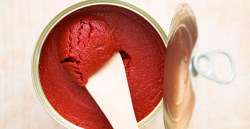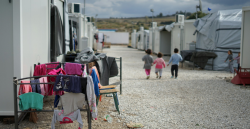A nonprofit has filed a federal lawsuit to force the U.S. government to block imports of cocoa from Côte d’Ivoire, West Africa. International Rights Advocates say that were left with no alternative but to file this lawsuit due to the lack of a response to their petition submitted over over three years ago. That petition, to U.S. Customs and Border Protection, called for a ban on the import of Ivorian cocoa due to “the irrefutable evidence of forced child labor”.
The Tariff Act of 1930 prohibits the importation into the U.S. of any goods made “wholly or in part” using forced, indentured, or convict labor, in any part of the world. Nonprofits have increasingly used the petition mechanism to invoke this law and drive better labor practices in the production of a variety of goods. Many of these petitions remain unanswered.
Empty promises and tired excuses
Extensive evidence has been published over the past few decades shining a light on children working on cocoa plantations in West Africa, some of whom have been trafficked from neighbouring countries. The region produces 70% of the world’s cocoa supply.
Major chocolate companies such as Mars, Nestle, and Hershey agreed to stop purchasing cocoa produced by child labor in 2001, but did not follow through. Then they pledged to end their reliance on child labor in 2005. Now they are saying they will ensure forced child labor does not feature in their cocoa in two years’ time, in 2025.
International Rights Advocates say the aim of their action is to exert legal pressure on leading cocoa corporations, namely Nestle, Cargill, Mars, Hershey, Mondelez, Barry Callebaut, Olam, and Blommer Chocolate to end their dependence on forced child labor.
Their executive director Terry Collingsworth told The Associated Press:
“They will never stop until they are forced to”. He added that the U.S. government has “the power to end this incredible abuse of African children by enforcing the law.”
Putting his views to Customs and Border Protection Associated Press reports:
Spokespeople for CBP declined to comment on the suit, which was filed in the U.S. Court of International Trade. When asked more generally about cocoa produced by child labor, the federal agency said it was “unable to disclose additional information or plans regarding forced labor enforcement activities due to protections of law enforcement sensitive and business confidential information.”
How much proof will it take?
The U.S. government recognises child labor as a major problem in West Africa, reporting in 2021 that:“Children in Cote d’Ivoire are subjected to the worst forms of child labour, including in the harvesting of cocoa and coffee.”
Terry Collingsworth traveled to cocoa farms in the Ivory Coast where he documented children chopping through brush and harvesting cocoa. His evidence includes interviews with children as young as 12 who said their wages were being withheld, and they had been tricked by recruiters into working long hours on a false promise they would be given land of their own.
The international Rights Advocates’ lawsuit includes this evidence as well as the lengthy petition from 2020 detailing how the companies are violating the law.
Call for ethical cocoa production
It is not just major chocolate companies that source cocoa from West Africa where child labor and abuse is rampant. Other companies, not primarily known for chocolate products, like Starbucks use substantial quantities of cocoa in over 23 products they sell.
Freedom United this week launched a new action calling on Starbucks to take steps to ensure their cocoa is sourced ethically. This follows a petition launched two years ago calling on major chocolate companies to undertake practical steps to address child slavery and exploitation.
Sign the petition and write to Starbucks.







Freedom United is interested in hearing from our community and welcomes relevant, informed comments, advice, and insights that advance the conversation around our campaigns and advocacy. We value inclusivity and respect within our community. To be approved, your comments should be civil.
This is Child Abuse! Children on Cocoa farms in West Africa, are suffering on
a physical, mental & emotional level! Governments & Educational systems in Europe and America, need to be informed of the companies who are ignoring
this, and ban their products…and focus on Ethical Chocolate organisations,
who produce from Fair Trade Cocoa Farms, so that more people will be aware
of what food products they are buying. This needs to be taught in schools, to
lesson the suffering!
It falls to us, the consumers, to stop buying these products. We can force the hands of major companies by withdrawing any chance of them making a profit out of continuing to ignore the pleas of those seeking for justice for the workers.